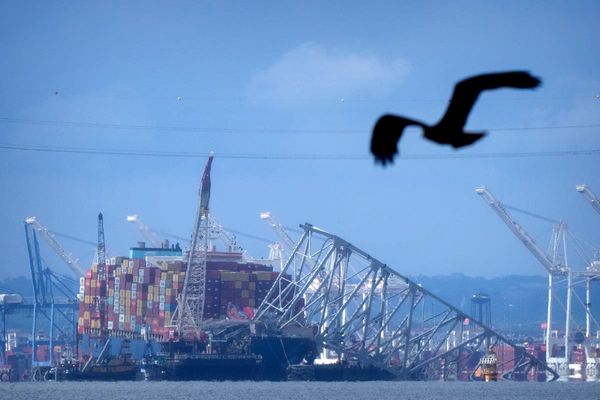
The Albanese government has successfully suppressed details of the effectiveness of electronic monitoring, arguing that transparency could encourage former immigration detainees to breach ankle bracelet visa conditions.
On Friday the high court granted a suppression order on expert evidence relating to how ankle monitors work in a challenge of harsh new visa conditions, set to be heard as early as August.
In November the Albanese government passed laws with the Coalition opposition requiring former immigration detainees released by the high court to wear ankle bracelets and obey curfews, with minimum penalties of a year in prison for the new offence of breaching bridging visa R conditions.
In February Guardian Australia revealed that the laws were under challenge by a stateless refugee from Eritrea, known by the pseudonym YBFZ, who was released as a result of the ruling on indefinite detention and subjected to the curfew and electronic monitoring.
In submissions on 30 April, the immigration minister, Andrew Giles, asked the court to suppress details about how Australian Border Force and Buddi Ltd conduct electronic monitoring.
That included evidence from one witness about: “the general accuracy of the smart tag … when using GPS technology to detect its location”; the frequency with which the smart tag records data including location; and the frequency the tag transmits it.
Giles and the commonwealth submitted that the order was necessary for “national security” and “to prevent prejudice to the proper administration of justice” because the material would disclose “sensitive law enforcement technologies and capabilities”.
Disclosure “could lead to persons testing and ascertaining the capabilities and limits of their electronic monitoring devices”, making them “more likely to breach their visa conditions … in the belief their activity will remain undetected for a period of time”.
This risk extends beyond former immigration detainees to others including serious sex or violent offenders in Victoria, who are also subject to electronic monitoring, the defendants said.
On Friday the court granted the suppression order by consent. The evidence will be available to the court and the parties but not the public.
The court ordered the plaintiff to make written submissions by 24 May and the defendants to do so by 14 June, a timetable that would prepare the case to be heard as early as August, when the court returns from the July recess.
In December Guardian Australia revealed that Giles was removing the bracelets from people seeking to challenge their legality in court, which resulted in five early cases challenging visa conditions to be discontinued.
In December and January YBFZ was charged with offences related to failing to observe curfew and charge his ankle monitor but these have been dropped. The case is proceeding with both sides agreeing relevant facts for the plaintiff to seek a declaration the visa conditions are unconstitutional.
YBFZ’s lawyers, Refugee Legal, argue the curfew and ankle bracelet visa conditions are punitive and breach the separation of powers.
The practice of removing the bracelets has become controversial after a delegate of Giles – on advice from the community protection board – removed the condition from Majid Jamshidi Doukoshkan’s visa, before he and two other men allegedly alleged assaulted and robbed a 73-year-old Perth woman, Ninette Simons, in April.
The Albanese government has insisted that curfews and ankle bracelets will withstand challenge, arguing that the creation of the community protection board to advise on visa conditions would help it show the court it is “making good decisions based on the advice of experts”.
In February a spokesperson for Giles said it would be “highly irresponsible” to comment on legal matters or individual cases.







